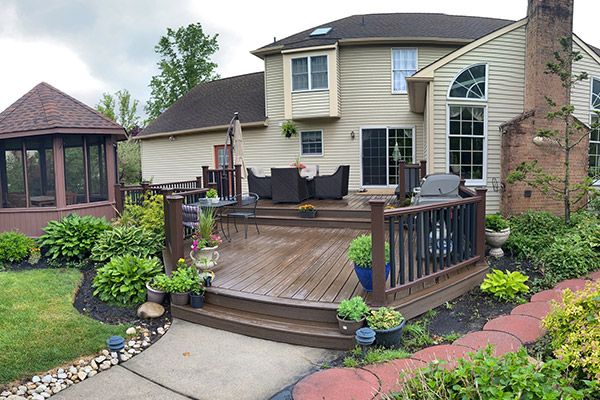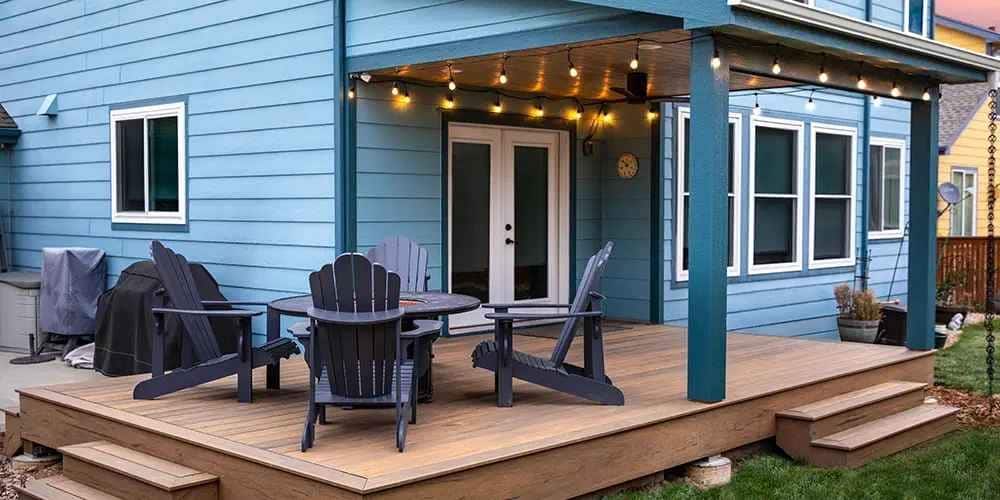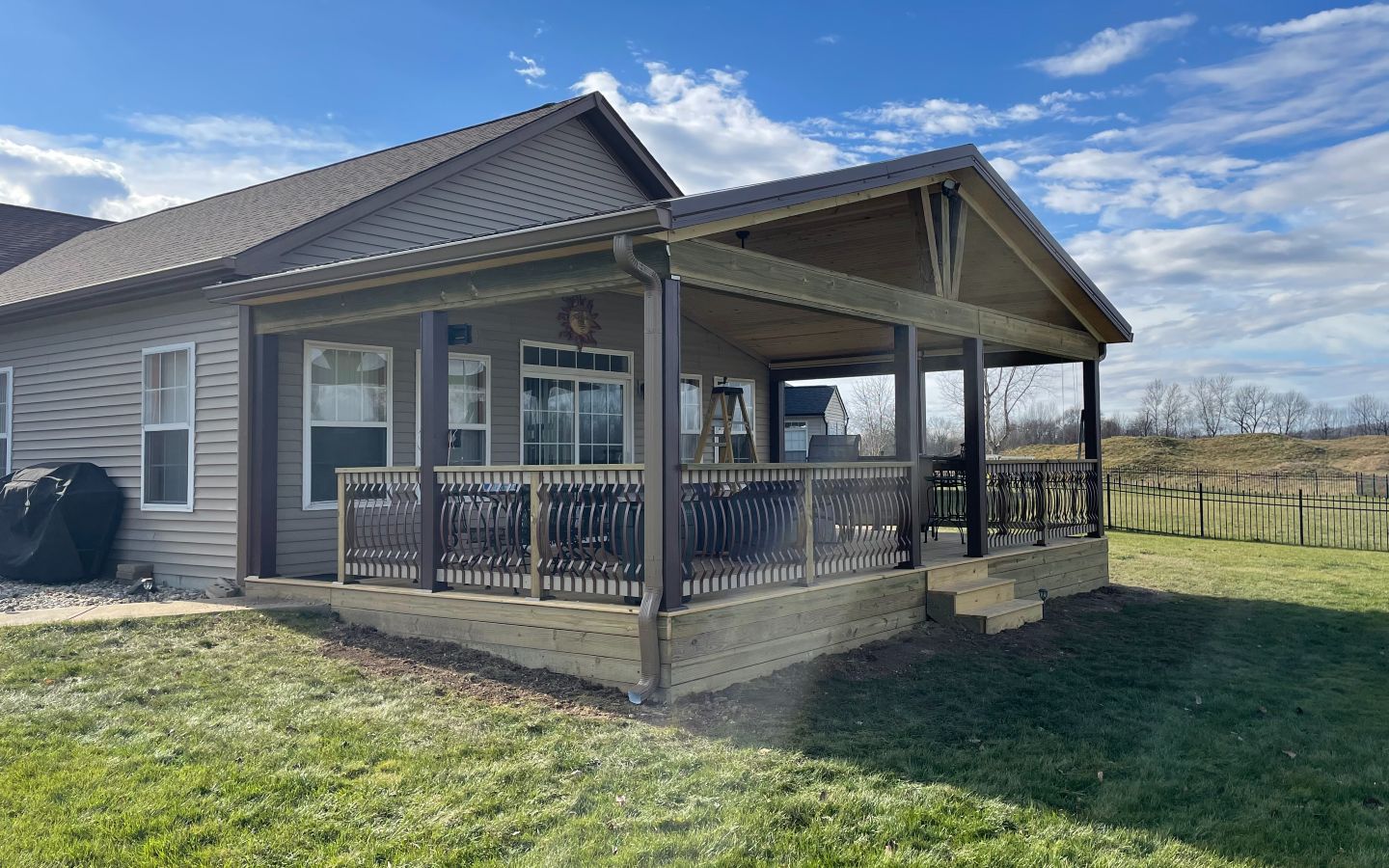The complete guide to selecting the Best Deck Builders Near Me
The complete guide to selecting the Best Deck Builders Near Me
Blog Article
Exploring Numerous Types and Advantages of Deck: A Comprehensive Guide
The exterior deck is more than just an extension of one's living area; it's a testimony to individual style, a place for social events, and a refuge to unwind. The choice of decking material substantially affects these facets, with alternatives ranging from the traditional appeal of wood to the usefulness of composite, and the resilience of aluminum. Comprehending the subtleties of these products is crucial, so allow's begin our exploration, one deck type at once.
Understanding the Fundamentals of Decking Material
Outdoor decking product serves as the foundation of any type of deck project, dictating the general visual appeals, durability, and performance of the final item. The market offers a vast variety of products, each with distinct qualities matched to various style preferences and environmental conditions. The choice includes natural timber, composite, plastic, aluminium, and even concrete. Timber, being the conventional selection, provides an ageless, classic appeal. Composite, a combination of timber and plastic, provides wood-like visual appeals with less maintenance. Plastic and aluminium provide modern, minimalistic options, while concrete is preferred for its unrivaled longevity. The selection of product dramatically influences the deck's life expectancy, maintenance demands, and resistance to aspects. Consequently, comprehending the essentials of decking product is crucial for an effective deck project.
Benefits and Disadvantages of Timber Decks
In examining deck kinds, understanding the pros and cons of timber decks becomes critical. This entails taking into consideration elements such as the sort of timber picked and its effect on the deck's efficiency. The subsequent conversation will explore these factors thoroughly to provide a comprehensive sight of the disadvantages and benefits connected with timber decks.

Wood Deck: Disadvantages & pros
The appeal of wood decks can not be overemphasized. They show a timeless charm and warm aesthetic that many homeowners locate irresistible. This all-natural material is versatile, enabling a variety of style possibilities, and can give an excellent roi.
Nonetheless, timber decks additionally include certain disadvantages. They require constant maintenance, consisting of regular cleaning, discoloration or painting, and prospective replacement of rotten or warped boards. Timber is also susceptible to damage from bugs and rough climate problems. Its long life can be much less than other outdoor decking products, especially if not correctly cared for.
Choosing Your Timber Kind

Discovering the Advantages of Compound Decking
Transforming attention to composite outdoor decking, it provides one-of-a-kind advantages. Its sturdiness surpasses typical timber in rough weather condition conditions, lowering the demand for constant maintenance. In addition, it supplies a pleasing aesthetic charm with variable style choices.
Composite Decking Sturdiness Conveniences
Despite the variety of decking choices offered in the marketplace, composite decking sticks out for its durability. This type of outdoor decking, made from a blend of wood and plastic, provides a resistant, long-lasting system immune to elements that typically weaken other materials (Best Deck Builders Near Me). It doesn't split, splinter, or warp, guaranteeing a constantly smooth surface for many years. Moreover, it's unsusceptible to harm from bugs such as termites, contributing to its longevity. The inherent resistance to fading, staining, and scratching is an additional notable advantage. This makes it an excellent choice for outside spaces or high-traffic locations revealed to severe weather problems. In recap, the toughness benefits of composite outdoor decking supply a sustainable, cost-efficient service for exterior space.
Upkeep of Compound Decks
In addition to longevity, composite decking boasts a major benefit in terms of upkeep. Unlike traditional wood decks, composite decks are not at risk to rot, warp, or insect damage, thus considerably lowering the requirement for routine repairs and replacements. The low-maintenance nature of composite decks not only provides ease of maintenance but also contributes to their lasting cost-effectiveness.
Visual Appeal and Irregularity

The Rising Popularity of Light Weight Aluminum Decks: Why Pick Them?
As the need for long lasting and low-maintenance decking rises, aluminum decks are significantly becoming the best choice for several home owners and builders. These decks, made from a light-weight yet durable steel, use numerous benefits over traditional timber or composite decks. To begin, light weight aluminum is naturally resistant to the elements, implying it will not warp, crack, or fade gradually. This makes it an affordable choice in the future. In addition, its non-porous surface area protects against the development of fungis, bugs, or mold and mildews, guaranteeing a healthy and clean outdoor area. Light weight aluminum decks are also eco-friendly, as they are commonly made from recycled products and can be reused again at the end of their life expectancy. Finally, their sleek and modern-day aesthetic charm fits well right into contemporary home layouts.
Maintenance Tips for Different Decking Products
All-natural timber decks need regular securing or staining to prevent weather condition damages, while composite decks need regular cleansing with soap and water to remove spots and particles. Recognizing these maintenance requires is crucial for deck proprietors to optimize their investment and keep their decks looking their finest for my response years to come.
Variables to Take Into Consideration When Picking Your Deck Kind
Composite decks resist moisture well, making them excellent for damp or rainy areas. While some may prefer a luxurious, unique timber deck, spending plan restraints might necessitate an extra economical selection like pressure-treated wood. Thus, climate, upkeep, lifestyle, and cost are essential considerations in deck option.
Conclusion
Wood decks captivate with all-natural beauty, while composite and light weight aluminum varieties use sturdiness and reduced maintenance. Before devoting to a certain deck type, property owners ought to thoroughly think about the benefits, downsides, and upkeep demands of each material.
In assessing deck types, understanding the pros and cons of timber decks ends up being critical.Regardless of the wide variety of outdoor decking choices offered in the market, composite decking stands out for its durability. Unlike typical timber decks, composite decks are not prone to rot, warp, or insect damage, thus considerably decreasing the demand for regular fixings and substitutes. These decks, made from a lightweight yet tough metal, offer a number of benefits over standard wood or composite decks. All-natural timber decks need routine staining or sealing to prevent weather condition damages, while composite decks require regular cleaning with soap and water to get rid of discolorations and particles.
Report this page